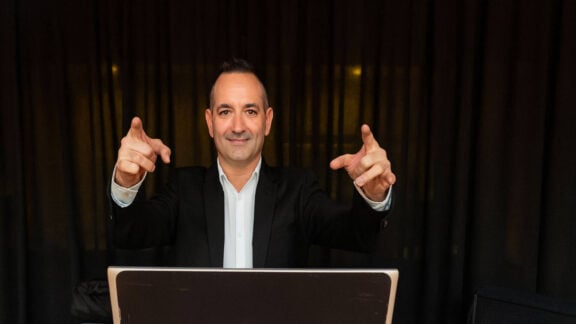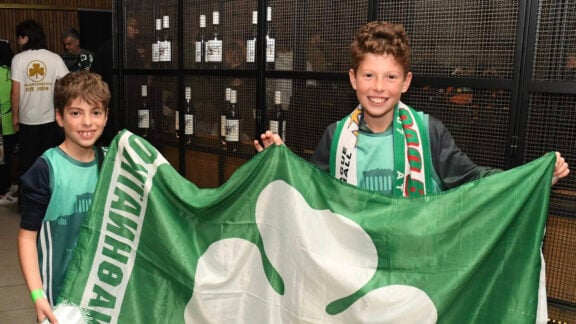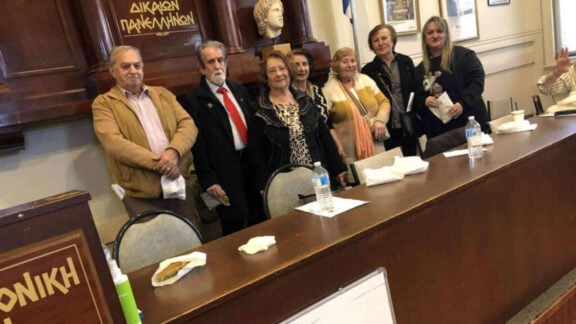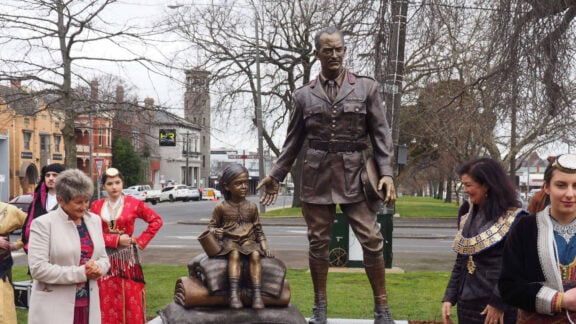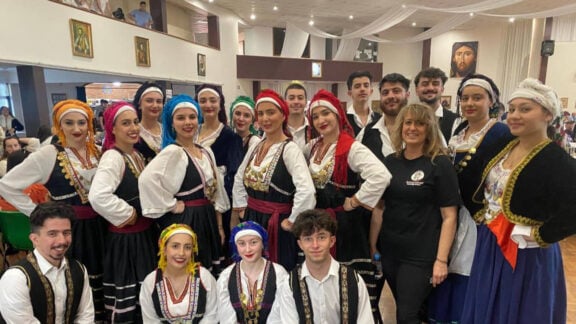It’s been six years since Greece was thrust into the international spotlight, claiming centre stage as the worst-possible example of a debt-ridden country, brought to its knees by a combination of state corruption, overspending, neo-liberal dogmatism and the effects of the Global Financial Crisis.
Struggling with high unemployment, harsh austerity, rising inequality and regressive taxation, the country has seen its middle class all but crushed and almost every sector gasping for air.
One thing seems to be thriving, though. After the initial shock, the arts industry – the term becoming more and more ironic, as the sector has never been more deprived of funding – has been fighting back, responding to the ongoing crisis with creativity. Dissecting the Greek psyche, the output of artists, writers, musicians and poets offers valuable insight to the effect of the imposition of austerity on the social fabric, thus proving to be a much more useful tool for understanding what has been going on in Greece than any analysis by a financial think-tank could offer.
Karen Van Dyck seems to share this view. The Kimon A. Doukas Professor of Modern Greek Literature in the Classics Department at Columbia University, where she directs the program in Hellenic Studies and teaches courses on Modern Greek, Greek diaspora literature, translation and gender has recently edited a magnificent collection aptly named Austerity Measures: The New Greek Poetry (Penguin UK).
“When there is less to go around, people fight, grab, get tough. Lately, Greece and the Balkans have been living with more than their share of less,” she writes in the collection’s introduction, only to add: “Poetry, though, is one thing there is more of. Much more. Poets writing graffiti on walls, poets reading in public squares, theatres and empty lots, poets performing in slams, chanting slogans, and singing songs at rallies, poets blogging and posting on the internet, poets teaming up with artists and musicians, teaching workshops to school children and migrants. In all of the misery and mess, new poetry is everywhere, too large and various a body of writing to fit neatly on either side of any ideological rift.”
‘GREECE EXCEEDS THE BOUNDARIES OF A NATION STATE’
It is this kind of poetry that Van Dyck collected in the book. Poems that come from a whole range of different outlets and backgrounds; writings by established poets juxtaposed with the word-play of rappers and non-Greek names are common fare in the book, in a striking display of heterogeneity one would normally not associate with Greece.
“I decided to organise the anthology around where poetry happens, rather than alphabetically, chronologically or thematically,” she says, explaining how the collection came to be. “This, I felt, would give the English-speaking reader a better sense of the poetry’s reach and diversity. It is happening everywhere; not just in literary magazines, but in DIY blogs, in theatres, abandoned lots, cafes, in villages on the borders, outside Greece …
“Also, this approach allowed me to introduce poets who weren’t already known in the regular literary circles,” she adds.
How representative of modern Greek culture is the outcome, in her opinion?
“Well, the answer to that is as varied as the poetry included,” she answers, giving some examples of the poets featured in the book. “Jazra Khaleed sees his poetry as a way of practicing politics. It’s not from the printers, he says, but from the mines. Doukas Kapandais thinks it has nothing at all to do with politics. Elena Penga is more East Greenwich Village than Salonican.
“The only thing they all agree on is that Greece exceeds the geographical and linguistic boundaries of a nation state. It is not representative in the traditional sense of political representation. And no, not really in the literary sense of mimesis either. To represent something, don’t you have to believe there is something fixed to represent? For these poets, contemporary Greece, like the fox in Katerina Iliopoulou’s poem, is what exceeds definition. It’s what you chase after, not what you catch.”
‘POETRY CAN TELL US SOMETHING THE NEWS CAN’T’
A Philhellene in the truest sense of the word, Karen Van Dyck is a scholar who can claim to have a deep understanding of Greek poetry as it evolved throughout the ages. Yet, she herself was surprised by some of the work she came across while working on Austerity Measures, allowing her to draw some interesting conclusions on the state of Greek poetry.
“I was most surprised to find that many poets were bridging prose and poetry in their writing,” she says. “There was a new storytelling component that recalled the folk song tradition and ballads like The Bridge of Arta, but also spoke to contemporary international literary trends like flash fiction.
“I was also struck by the complete reinvention of the 15-syllable line, the political verse, as it is called. Yannis Efthymiades stretches it out to 27 syllables in his masterful meditation on a man falling from the World Trade Centre. These poets seem fearless. Open to everything. Maybe it has to do with the fact that they feel there’s nothing to lose.”
The feeling of ‘nothing to lose’ can be liberating, especially in times of oppression. Karen Van Dyck knows it all too well, being one of the world’s leading authorities of Greek poetry of the dictatorship era, which she analysed in her book Kassandra and the Censors: Greek Poetry since 1967 and collected in her anthology The Rehearsal of Misunderstanding.
Although she’s reluctant to compare the crisis to the junta (as many in Greece do), she can definitely see some similarities, at least in terms of the role of poetry as socio-political commentary.
“During the dictatorship, poets, especially women, used the lessons of censorship to their own ends. Elliptical, parological, and full of ambiguity, their poetry told us that nothing can be taken at face value,” she explains. “Again, in recent years, poets, especially women, drawing on the work of poets from the generation of the ’70s such as Katerina Anghelaki-Rooke and Jenny Mastoraki, have turned to dreams and myth to rewrite the difficult times. This is particularly evident in the poets who write for Farmakon [φρμκ is a bi-annual literary magazine] such as Phoebe Giannisi, Anna Griva, Katerina Iliopoulou and Eftychia Panayiotou, but also Yiannis Efthymiades and Yiannis Stiggas.
“The similarity between these two different historical moments lies in the sense that poetry can tell us something the news and politicians can’t. The difference, I think, is what poets now take for granted: everything is at their fingertips through the internet. The Greek language includes so many hybrid forms – Gringlish, Gralbanian, Grurkish – Greekness is something borderless, nomadic, and the Greek literary tradition is not a necessary education for a Greek poet. Arabic feminism or code poetry might be equally useful.”
DISCOVERING GREEK IN AUSTRALIA
This approach should come as no surprise given the way Karen Van Dyck’s ongoing interest in Greek language began. “From an early age I lived in cities with very strong Greek diaspora communities – Melbourne, London, New York, and most recently Istanbul,” she says. “I was always fascinated by the Greek alphabet and language. In 1974, I remember travelling back and forth on the train from my home in South Melbourne, where my father had a parish, to PLC, the Presbyterian Ladies College.
“Going to an Australian private school rather than an American public school, wearing a uniform, even down to blue hair ribbons, eating pavlova and meat pies … everything was new, but it was the anti-junta graffiti of the Greek immigrants that became my passion. I wanted to know what they were saying. It was a way of identifying with the foreignness I felt. A way of learning how to decipher it. At PLC I took Russian hoping that would help, but I didn’t find all the letters I was looking for. The ‘ξ’, for example, was missing. The long road to realising the letters were Greek and then mastering this other language made it all the more rewarding. Only much later, writing my book on poetry under and after the dictatorship, did I finally understand the urgency and politics I had sensed in the writing on the walls.”
What kind of impact did these anti-junta scribblings on the walls of Melbourne have on a young American expatriate?
“It made me want to know how words and politics were related,” she attests. “It made me cautious of generalisations. It taught me that if you want to understand the larger picture, you need to figure out the specifics. It also made me think from the position of the in-between, the translator. Though not officially a part of the diaspora, not Greek by birth, I am Greek by work and experience. My constant struggle to think about Greek in the context of other cultures and languages, my decision to raise my three sons in Greek and to teach Greek literature and translation outside Greece have all meant that my take on the world is closer to that of a C.P. Cavafy, Olga Broumas or Antigone Kefala.”
This take on the world was influenced by much more than language, of course.
“I remember wondering why each wave of migrants took out their frustrations on the next,” she says. “Fights would break out at the Foster’s brewery, where the parents of the kids in the South Melbourne parish worked. How to imagine forms of tolerance that don’t erase history? How to think through the eyes of the underdog even after one has achieved middle-class status? Australia taught me that to be minor, and to stay minor, is a major accomplishment.”




